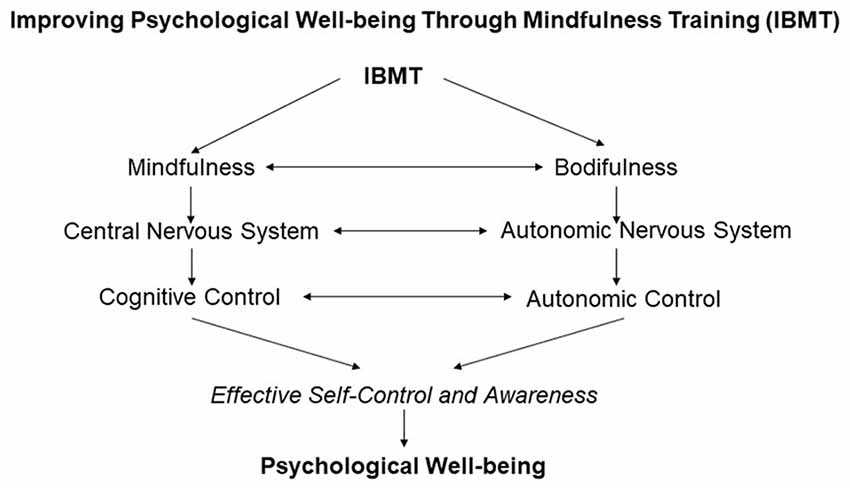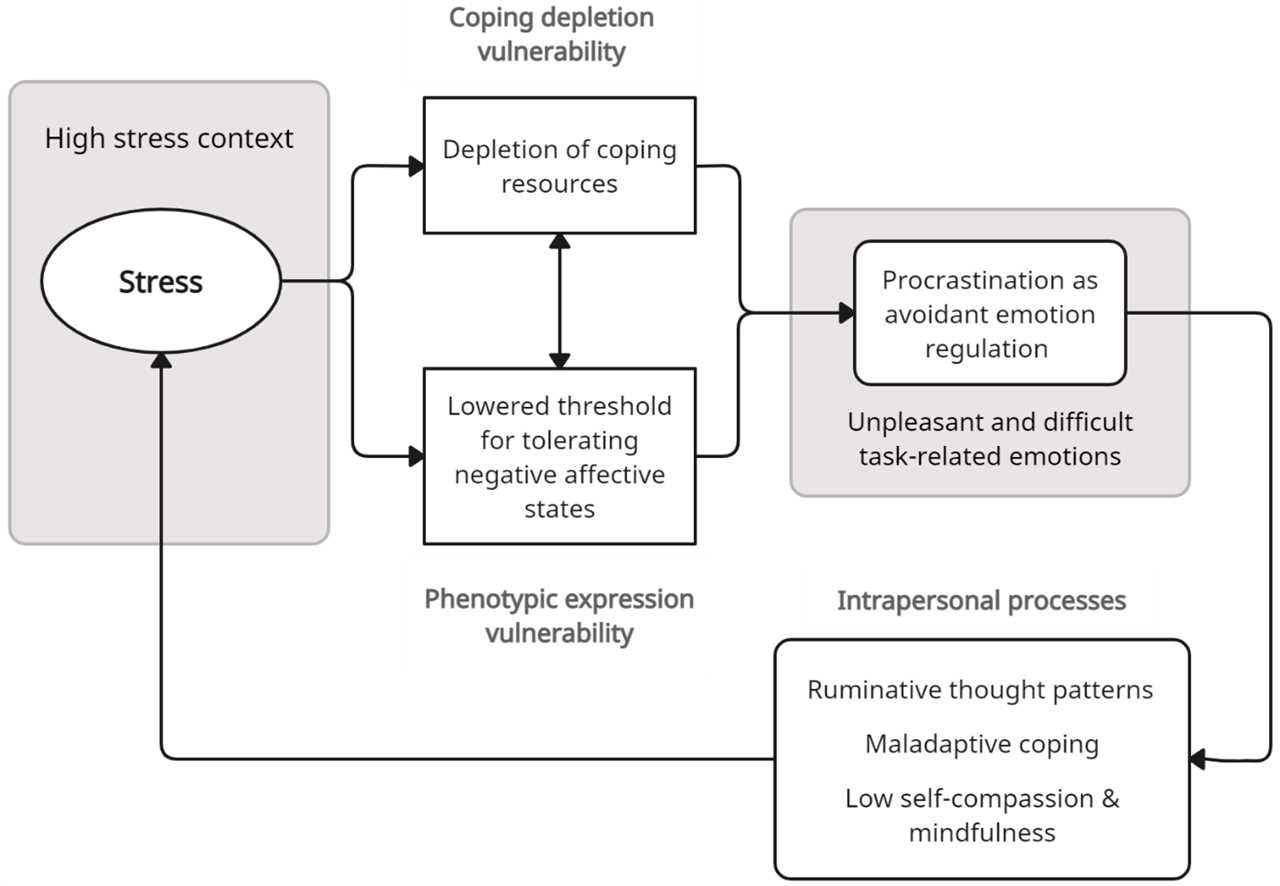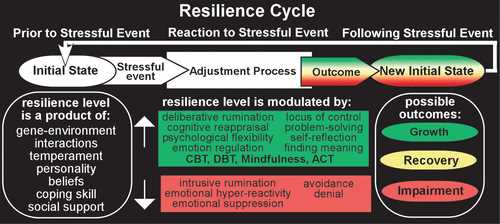
In today’s fast-paced and demanding world, stress has become an inevitable part of our lives. Whether it’s due to work pressures, personal relationships, or financial difficulties, everyone experiences stress at some point. However, it’s how we manage and cope with stress that determines our emotional resilience.
Emotional resilience refers to an individual’s ability to adapt and bounce back from adversity. It’s the capacity to remain calm and composed in the face of challenges, and to recover quickly from setbacks. Developing emotional resilience is crucial for maintaining good mental health and overall well-being.
One effective approach to promoting emotional resilience is through cognitive-affective stress management training. This type of training focuses on enhancing an individual’s cognitive and emotional skills to better cope with stress. It involves learning strategies to identify and challenge negative thoughts, regulate emotions, and develop positive coping mechanisms.
Understanding Emotional Resilience
Emotional resilience refers to an individual’s ability to adapt and bounce back from stressful situations. It involves cognitive-affective processes that enable individuals to effectively manage and regulate their emotions in the face of adversity.
Training programs focused on promoting emotional resilience aim to enhance individuals’ capacity to cope with stress and build their resilience. These programs typically incorporate various techniques and strategies to help individuals develop a strong emotional foundation and improve their ability to navigate challenging circumstances.
One key aspect of emotional resilience is the recognition and understanding of one’s emotions. By being aware of their emotional states, individuals can better identify and manage stress triggers. This self-awareness allows individuals to develop effective coping mechanisms and make informed decisions, ultimately promoting their overall well-being.
Another crucial component of emotional resilience is the ability to regulate emotions. This involves the capacity to manage and control one’s emotional responses to stressors. By developing effective emotion regulation strategies, individuals can reduce the negative impacts of stress on their mental and physical health.
Promoting emotional resilience can have numerous benefits, including improved psychological well-being, enhanced problem-solving skills, and increased overall resilience to stress. By equipping individuals with the necessary tools and skills to manage and regulate their emotions, cognitive-affective stress management training plays a vital role in fostering emotional resilience and promoting mental health.
Definition and Importance
Cognitive-affective stress management training is a program that focuses on enhancing emotional resilience and promoting effective stress management techniques. It involves a combination of cognitive and affective strategies to help individuals develop the skills and abilities needed to cope with stress.
Emotional resilience refers to the ability to adapt and bounce back from challenging situations, while maintaining a positive outlook and emotional well-being. It involves being able to regulate one’s emotions, manage stress, and effectively cope with adversity.
Stress management is crucial for maintaining overall well-being and reducing the negative impact of stress on physical and mental health. By learning effective stress management techniques, individuals can improve their ability to handle stressors and prevent the development of stress-related disorders.
The cognitive-affective approach combines cognitive techniques, such as cognitive restructuring and reframing, with affective strategies, such as relaxation techniques and mindfulness exercises. This comprehensive approach addresses both the cognitive and emotional aspects of stress, providing individuals with a holistic set of tools to manage and cope with stress.
Overall, cognitive-affective stress management training is an essential component of promoting emotional resilience and improving stress management skills. By enhancing individuals’ ability to regulate emotions, cope with stress, and maintain a positive outlook, it can contribute to improved overall well-being and quality of life.
Factors Influencing Emotional Resilience
Emotional resilience is a key aspect of managing and coping with stress. It refers to the ability to bounce back from adversity and maintain a positive outlook despite challenging circumstances. Several factors can influence a person’s emotional resilience, including:
1. Supportive Relationships: Having a strong support system of friends, family, and mentors can greatly enhance emotional resilience. These relationships provide a sense of belonging, validation, and encouragement, which can help individuals navigate through difficult times.
2. Self-Efficacy: Believing in one’s abilities and having confidence in one’s problem-solving skills can contribute to emotional resilience. When individuals have a strong sense of self-efficacy, they are more likely to approach challenges with a positive mindset and persevere through setbacks.
3. Coping Strategies: Developing effective coping strategies is essential for promoting emotional resilience. These strategies may include practicing mindfulness, engaging in physical activity, seeking social support, or engaging in hobbies and activities that bring joy and relaxation.
4. Positive Mindset: Cultivating a positive mindset can help individuals build emotional resilience. This involves reframing negative thoughts, focusing on strengths and accomplishments, and adopting an optimistic outlook on life. A positive mindset can help individuals maintain perspective and find meaning in difficult situations.
5. Emotional Intelligence: Emotional intelligence, which involves the ability to recognize and understand one’s own emotions and the emotions of others, can contribute to emotional resilience. Individuals with high emotional intelligence are better equipped to manage stress, regulate their emotions, and maintain positive relationships.
6. Personal Values and Beliefs: Having a strong sense of personal values and beliefs can provide individuals with a sense of purpose and meaning. This can help them navigate through challenging situations and make decisions that align with their core values, contributing to emotional resilience.
7. Growth Mindset: Adopting a growth mindset, which involves the belief that abilities and intelligence can be developed through effort and perseverance, can enhance emotional resilience. Individuals with a growth mindset are more likely to view failures as learning opportunities and are motivated to continue growing and improving.
8. Self-Care: Taking care of oneself physically, mentally, and emotionally is crucial for promoting emotional resilience. This includes getting enough sleep, eating a balanced diet, engaging in regular exercise, and practicing self-compassion and self-care activities.
By understanding and cultivating these factors, individuals can enhance their emotional resilience and better cope with stress and adversity. Promoting emotional resilience through cognitive-affective stress management training can help individuals develop these skills and strategies for managing stress effectively.
Cognitive-Affective Stress Management Training
Promoting emotional resilience is crucial in managing stress effectively. Cognitive-affective stress management training is an approach that focuses on developing skills to cope with stress and enhance emotional well-being. This training is designed to help individuals recognize and modify their thoughts, emotions, and behaviors in response to stressors.
The cognitive aspect of the training involves identifying and challenging negative or irrational thoughts that contribute to stress. Participants learn to reframe their thinking patterns and replace negative thoughts with more positive and realistic ones. This helps them develop a more balanced and adaptive mindset when faced with stressful situations.
The affective component of the training focuses on understanding and regulating emotions. Participants learn strategies to identify and manage their emotions effectively, such as relaxation techniques, mindfulness exercises, and emotional expression. By developing emotional awareness and regulation skills, individuals can better cope with stress and prevent it from negatively impacting their well-being.
Stress management training also includes practical skills for problem-solving and decision-making. Participants learn techniques to analyze stressful situations, identify potential solutions, and make informed choices. This empowers individuals to take control of their stressors and find effective ways to address them.
A key aspect of cognitive-affective stress management training is the development of resilience. Resilience is the ability to bounce back from adversity and maintain a positive mindset. Through the training, individuals learn strategies to build resilience, such as fostering social support, developing optimistic thinking, and practicing self-care.
In summary, cognitive-affective stress management training is a comprehensive approach to managing stress and promoting emotional resilience. By addressing cognitive, affective, and behavioral aspects of stress, individuals can develop the skills and mindset needed to effectively cope with stressors and maintain emotional well-being.
Overview and Goals

The “Promoting Emotional Resilience Cognitive-Affective Stress Management Training” program aims to provide individuals with the necessary tools and strategies to effectively manage and cope with emotional and cognitive-affective stress. The program focuses on promoting emotional resilience and enhancing individuals’ ability to adapt and bounce back from stressful situations.
Through a combination of educational modules, interactive exercises, and practical techniques, participants will learn how to identify and understand the impact of stress on their emotional well-being. They will also develop skills in stress management, such as relaxation techniques, cognitive restructuring, and problem-solving strategies.
The goals of the program are to:
| 1. | Equip individuals with the knowledge and skills to recognize and manage emotional and cognitive-affective stress. |
| 2. | Provide practical tools and techniques for promoting emotional resilience and enhancing coping abilities. |
| 3. | Help individuals develop a personalized stress management plan that suits their unique needs and circumstances. |
| 4. | Empower individuals to take control of their emotional well-being and improve their overall quality of life. |
By the end of the program, participants will have gained a deeper understanding of their emotional responses to stress and will be equipped with effective strategies for managing and reducing stress in their daily lives.
Techniques and Strategies
Stress management training programs that focus on cognitive-affective approaches can be effective in promoting emotional resilience. These programs teach individuals techniques and strategies to better cope with stress and build their resilience to future challenges.
One technique commonly used in cognitive-affective stress management training is cognitive restructuring. This technique involves identifying and challenging negative thoughts and beliefs that contribute to stress and replacing them with more positive and realistic ones. By changing their thinking patterns, individuals can reduce their stress levels and improve their emotional well-being.
Another strategy that is often taught in these programs is relaxation training. This involves teaching individuals various relaxation techniques, such as deep breathing exercises, progressive muscle relaxation, and guided imagery. These techniques can help individuals calm their minds and bodies, reducing stress and promoting a sense of calm and well-being.
Problem-solving skills are also emphasized in cognitive-affective stress management training. Individuals are taught how to identify and analyze the sources of their stress and develop effective strategies for problem-solving. By learning how to effectively manage their problems, individuals can reduce their stress levels and improve their overall resilience.
Self-care practices are also an important aspect of cognitive-affective stress management training. Individuals are encouraged to engage in activities that promote self-care and well-being, such as exercise, healthy eating, getting enough sleep, and practicing mindfulness and self-compassion. These practices can help individuals build their resilience and better manage stress in their daily lives.
Overall, cognitive-affective stress management training programs provide individuals with a variety of techniques and strategies to better manage and cope with stress. By incorporating these techniques into their daily lives, individuals can improve their emotional resilience and enhance their overall well-being.
Benefits of Emotional Resilience Training

Emotional resilience training is a cognitive-affective stress management program that focuses on developing individuals’ ability to bounce back from adversity and cope with stressors more effectively. This type of training has been shown to have numerous benefits for individuals in various aspects of their lives.
Promoting emotional resilience can lead to improved mental health and well-being. Individuals who undergo this type of training often report feeling more in control of their emotions and better equipped to handle challenging situations. They are more likely to have a positive outlook on life and experience higher levels of happiness and satisfaction.
Emotional resilience training also has significant benefits in the workplace. Employees who have undergone this type of training are better able to handle stress and pressure, leading to increased productivity and job satisfaction. They are also more likely to have better interpersonal skills and be able to build and maintain positive relationships with colleagues.
In addition to its impact on mental health and work performance, emotional resilience training can also have a positive effect on physical health. Research has shown that individuals who are more emotionally resilient are less likely to experience negative health outcomes, such as cardiovascular disease and chronic pain. They also tend to engage in healthier behaviors, such as regular exercise and balanced diet.
Overall, emotional resilience training offers a range of benefits for individuals, both personally and professionally. It equips them with the skills and mindset needed to navigate through life’s challenges and emerge stronger and more resilient. By promoting emotional well-being and effective stress management, this type of training can significantly improve individuals’ quality of life.
Improved Stress Coping Skills
Emotional resilience is a key factor in effectively managing stress. Promoting emotional resilience through cognitive-affective stress management training can help individuals develop improved stress coping skills.
Stress is a normal part of life, but it can become overwhelming when not properly managed. Through cognitive-affective stress management training, individuals can learn techniques to identify and understand their emotions, as well as develop strategies for effectively coping with stress.
By promoting emotional resilience, individuals can build a stronger foundation for managing stress. This includes learning to recognize and regulate emotions, as well as developing healthy coping mechanisms. With improved stress coping skills, individuals can better navigate challenging situations and maintain a sense of balance and well-being.
Training in stress management can provide individuals with the tools they need to effectively cope with stress. This may include techniques such as deep breathing exercises, mindfulness practices, and positive self-talk. By incorporating these strategies into their daily lives, individuals can improve their ability to handle stress and maintain emotional well-being.
Overall, promoting emotional resilience through cognitive-affective stress management training can lead to improved stress coping skills. By developing a strong foundation for managing stress, individuals can navigate life’s challenges with greater ease and maintain a sense of emotional well-being.

I am Patrina de Silva, a psychologist and mental health blogger in Sri Lanka. After obtaining psychology degrees from the University of Colombo and Monash University, I returned home to work as a counselor while also starting the popular blog “Pressy but Happy” to provide advice on psychological issues. Over the past decade, my empathetic articles have made my blog a leading mental health resource in the country. In addition to writing, I maintain a private therapy practice, frequently volunteer counseling time, and conduct seminars, driven by my passion for destigmatizing mental illness and educating the public on the mind-body connection. I strive to be an influential voice in my field through my compassionate approach.
